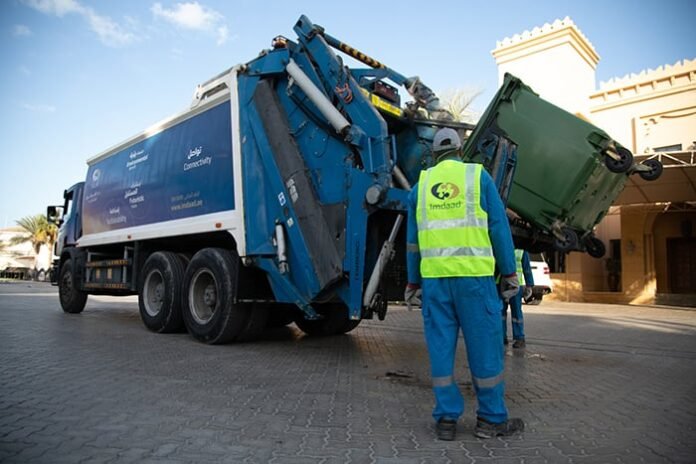Waste management is a critical aspect of urban living, particularly in rapidly growing cities like Dubai. With its dynamic lifestyle and constant development, Dubai generates a significant amount of waste daily. Effective waste removal and management are essential for maintaining the city’s cleanliness, environmental health, and sustainability. This blog explores the various aspects of waste removal in Dubai including the types of waste generated, the waste management system, the role of waste removal services, and tips for responsible waste disposal.
Types of Waste Generated in Dubai
- Residential Waste: This type of waste is generated from households and includes organic waste (food scraps), recyclables (paper, plastic, glass), and non-recyclable waste (broken items, contaminated packaging).
- Commercial Waste: Businesses, offices, and retail establishments produce commercial waste, which consists of packaging materials, office supplies, food waste from restaurants, and more.
- Industrial Waste: Generated by manufacturing and construction activities, industrial waste can include metals, chemicals, rubble, and other by-products.
- Medical Waste: Healthcare facilities produce medical waste, including used syringes, bandages, pharmaceuticals, and other hazardous materials that require specialized handling and disposal.
- E-Waste: Electronic waste, or e-waste, comprises discarded electronic devices like computers, smartphones, and appliances. Proper disposal is crucial due to the presence of hazardous materials.
- Hazardous Waste: This includes waste containing toxic, flammable, or reactive materials. Proper disposal is necessary to prevent environmental contamination and health risks.
Dubai’s Waste Management System
Dubai has a well-structured waste management system that involves various stakeholders, including government agencies, private waste removal companies, and the general public. The system is designed to handle the city’s diverse waste streams efficiently and sustainably.
- Dubai Municipality: The Dubai Municipality is the primary authority overseeing waste management in the city. It implements policies, regulations, and initiatives to manage waste and promote recycling.
- Waste Collection and Segregation: Waste collection in Dubai is organized through a network of waste removal companies and municipal services. Residents and businesses are encouraged to segregate waste into recyclables, organic waste, and non-recyclables to facilitate recycling and proper disposal.
- Recycling and Waste Treatment Facilities: Dubai has several recycling facilities that process materials like paper, plastic, glass, and metals. Additionally, waste-to-energy plants convert non-recyclable waste into energy, reducing landfill use.
- Landfills and Waste Disposal Sites: While the goal is to minimize landfill use, some waste still ends up in landfills. Dubai is actively working to reduce landfill waste through increased recycling and waste-to-energy initiatives.
- Public Awareness and Education: The Dubai Municipality and other organizations run campaigns to educate the public about proper waste disposal, recycling practices, and the importance of reducing waste.
Role of Waste Removal Services in Dubai
Private waste removal services play a crucial role in Dubai’s waste management system. These companies offer a range of services to cater to the diverse needs of residents, businesses, and industries.
- Residential Waste Removal: Private waste removal companies provide regular waste collection services for households. They offer bins and bags for different types of waste, ensuring proper segregation and disposal.
- Commercial and Industrial Waste Removal: Businesses and industrial facilities require specialized waste removal services. These companies handle large volumes of waste, including recyclables, non-recyclables, and hazardous materials.
- Specialized Waste Removal: Services include the collection and disposal of specific waste types, such as medical waste, e-waste, and hazardous waste. These companies follow strict protocols to ensure safe handling and disposal.
- Recycling Services: Many waste removal companies offer recycling services, providing bins and collection for recyclable materials. They partner with recycling facilities to ensure proper processing.
- Waste Audits and Consulting: Some companies offer waste audits and consulting services to help businesses reduce waste, improve recycling rates, and comply with environmental regulations.
Tips for Responsible Waste Disposal in Dubai
- Segregate Your Waste: Always separate recyclables, organic waste, and non-recyclables. Use designated bins and bags provided by waste removal services.
- Recycle Properly: Familiarize yourself with the recycling guidelines in Dubai. Ensure that recyclable materials are clean and sorted correctly.
- Reduce and Reuse: Minimize waste generation by adopting sustainable practices. Use reusable bags, containers, and products, and avoid single-use plastics.
- Dispose of Hazardous Waste Safely: Do not dispose of hazardous materials, such as batteries, chemicals, or medical waste, in regular bins. Use specialized waste removal services for safe disposal.
- Participate in E-Waste Recycling: Dispose of electronic devices responsibly through e-waste recycling programs. Many companies and organizations offer drop-off points for e-waste.
- Compost Organic Waste: If possible, compost food scraps and other organic waste. Composting reduces the amount of waste sent to landfills and produces valuable soil for gardening.
- Stay Informed: Keep up-to-date with Dubai Municipality’s waste management policies and guidelines. Participate in public awareness campaigns and workshops on waste reduction and recycling.
Final Words
Effective waste management is essential for maintaining the cleanliness, health, and sustainability of Dubai. With a growing population and increasing urbanization, the city faces significant challenges in managing waste. However, through a combination of government initiatives, private waste removal services, and public participation, Dubai is making strides toward a more sustainable future.
